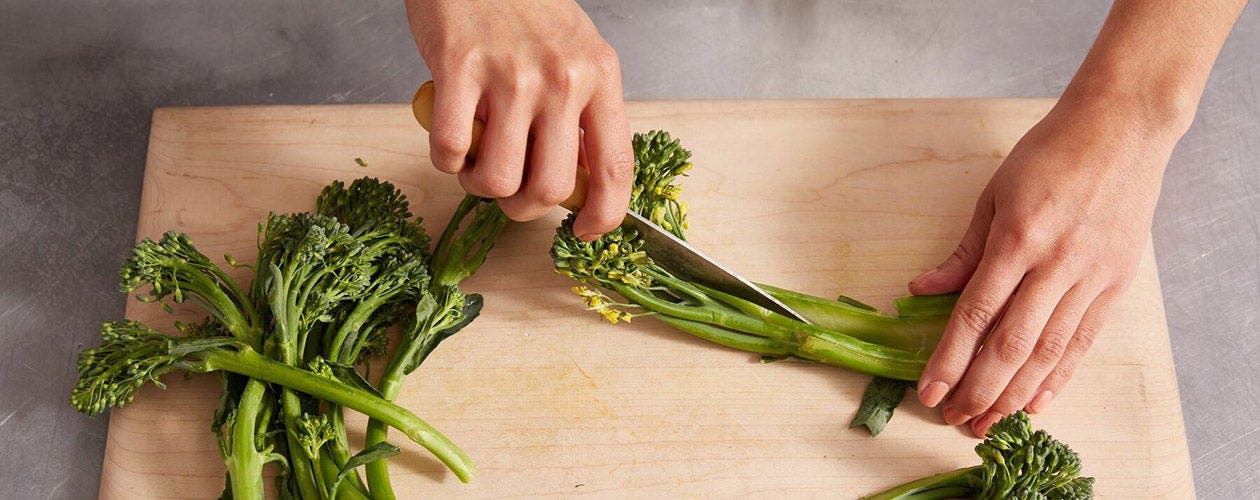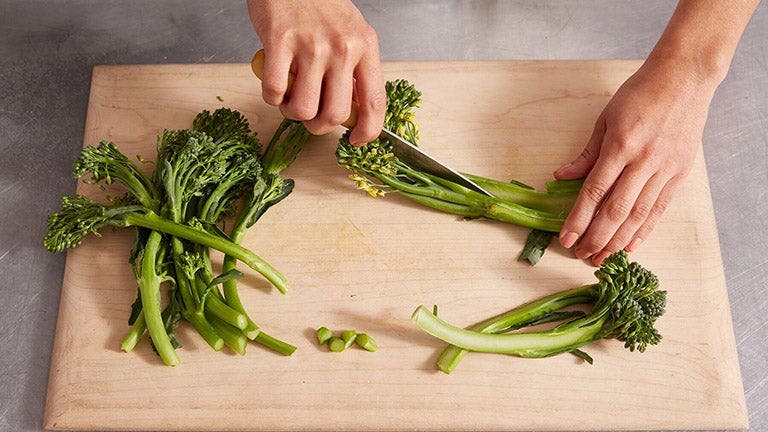Frozen vs. fresh veggies: what you need to know


Stocking up on ZeroPoint™ vegetables is always a great idea. But what's better: fresh or frozen?
It's easy to assume that fresh foods are higher quality than their frozen counterparts, but frozen veggies hold their own against the fresh stuff, and sometimes, they might even be the better choice.
Here’s why you should give frozen vegetables a chance, and how they can help you reach your health, weight loss and wellness goals.
Frozen veggies are just as good for you as fresh
Both fresh and frozen vegetables start out in the field where they’re grown and harvested. But their paths diverge from there: fresh veggies are packed on refrigerated trucks and transported (often over long distances) to your local grocery store.
From there, they might sit on the shelf for hours, or even days, before you pop them in your trolley and bring them home. All that time, their nutritional quality is diminishing, says Georgie Fear, RD, CSSD, nutrition coach and author of Lean Habits for Lifelong Weight Loss.
That’s not the case with frozen veggies, which studies show can retain higher levels of some nutrients than fresh ones. They’re flash frozen within hours of being picked, and kept frozen during transport, at the market, and after you bring them home.
The ultra-cold temperature prevents those all-important vitamins, minerals, and antioxidants from degrading. When you eat them, they’re still as nutritious as the day they were picked, says Frances Largeman-Roth, RDN, nutrition expert and author of Eating in Colour.
Frozen veggies make meal prep quick and easy
“They’re basically prepared for you,” says Largeman-Roth. “Instead of chopping, peeling, or slicing, all you have to do is cook them on the stove or in the microwave.”
That means frozen veggies can be a godsend on nights when you don’t have time or energy to cook, or if you can't find what you need in the produce aisle. Plus, because they last almost indefinitely, you can reach for them whenever your fridge is looking a little empty. “If you don’t have fresh vegetables on hand, you might think to yourself, well, I’m just having spaghetti,” Fear says. “But if you have frozen vegetables, you can add them in there and make a more well-rounded meal.” You can also use frozen veggies to supplement frozen ready meals, to make them more filling for relatively few extra calories.
Finally, they’re easy on your food budget. “Frozen veggies are often more affordable than fresh,” Fear says.
How to buy frozen vegetables
The flash freezing process ensures that veggies stay crisp, colourful and flavourful, Largeman-Roth says. Here are a few more things you can do to ensure you get the most of of your frozen veggies:
- Pick plain vegetables. Flavoured sauces are often packed with added sodium and sugar, or even saturated fat that can detract from the benefits of having veggies in the first place. Instead, buy plain frozen vegetables and season them with herbs, spices, fresh citrus or a drizzle of olive oil, Fear says.
- Let them do what they do best. Frozen vegetables tend to shine in things like soups, casseroles, sautés, stir-fries, or warmed up in the microwave as standalone sides. But when it comes to roasting, you’re better off using fresh, says Largeman-Roth. Because frozen veggies have more surface moisture, they don’t caramelise well.
- Find your staples. Love how frozen broccoli or spinach turn out, but can’t get behind the texture of frozen Brussels sprouts or mushrooms? Not everyone is a fan of every type of frozen vegetable, and that’s okay. “It’s about discovering what you find enjoyable,” Fear says. Stock up on the veggies that taste good to you, and you’ll always have the makings of a healthy meal on hand.
